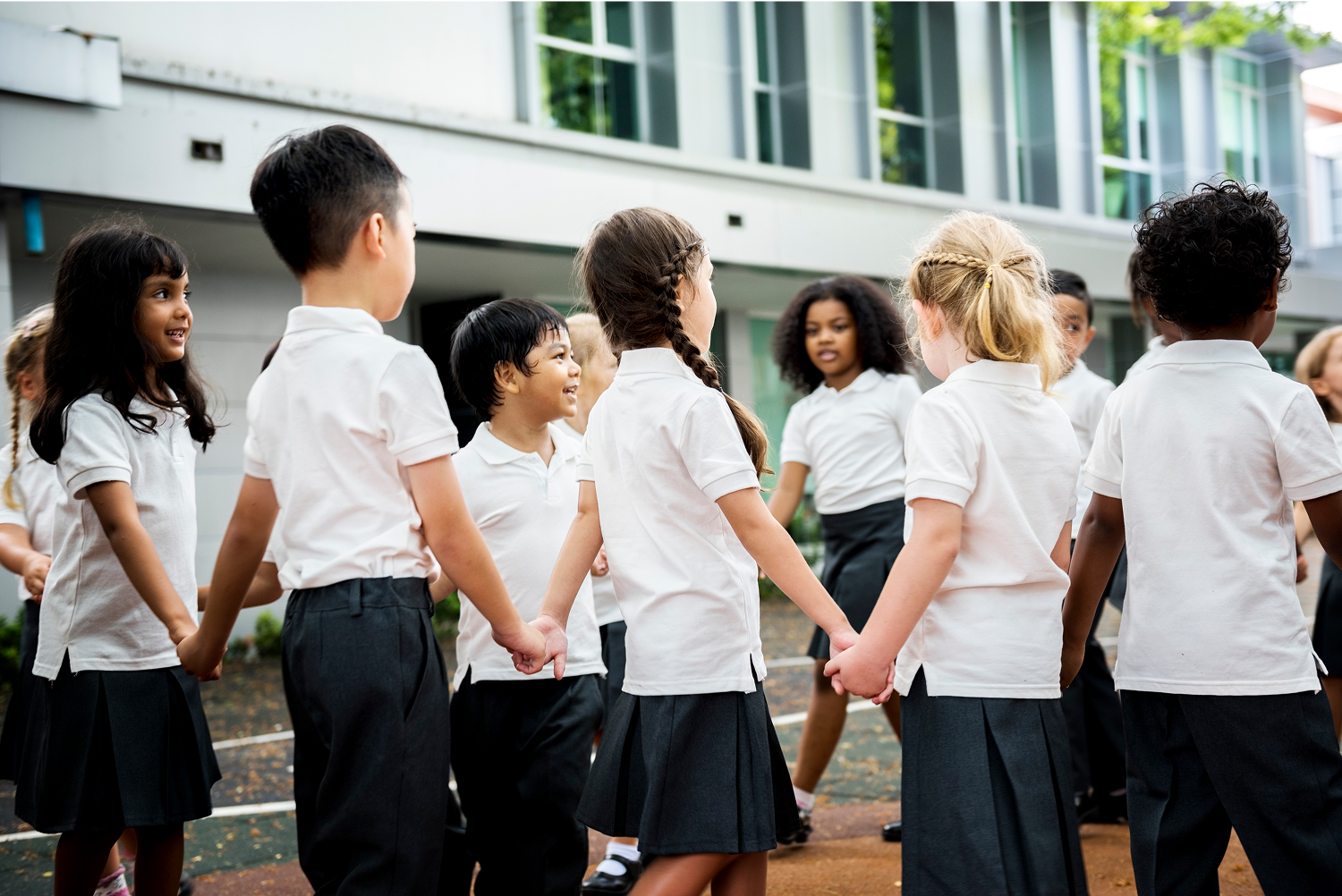By PBE Head of Communications Hannah Corbett
Right now, more than 100,000 children in the UK are missing from education – a number that has doubled since the pandemic. At the same time, one in four young people report low wellbeing. These figures are more than just statistics; they represent real children and their families, each with their own story of struggle, isolation, and the search for belonging.
When a child stops attending school, the consequences ripple far beyond the classroom. Their future education and job prospects are affected, but so too are their mental health, family relationships, and sense of self-worth. Schools and support systems are grappling to respond, and the emotional toll on families can be overwhelming.
It’s becoming increasingly clear that school avoidance is deeply connected to a child’s overall wellbeing. Feeling disconnected, anxious, or unsupported at school can make attending feel impossible. We brought together a panel of charity and research experts* to explore the link between wellbeing, social isolation, and school engagement. They discussed how tailored interventions focused on wellbeing, can help prevent and tackle school avoidance ; and the need to take a more holistic approach to measuring what works.
Emotionally Based School Avoidance is on the rise, with increasing numbers of young people experiencing anxiety, low wellbeing, and a lack of belonging in school.
OECD data reveals a concerning trend: while 25% of 15-year-olds report low wellbeing, that number jumps to 34% among those who skip classes and 42% for those who feel disconnected from their school community.
Julian Daniel, Programme Lead at Power2, a charity that supports young people, explained that school disengagement often starts small – missing the odd lesson here and there, or feeling overwhelmed by school life – before it escalates into long-term absence.
Parents play a crucial role in their child’s school engagement, yet they often face their own battles – whether it’s poor mental health, financial pressures, or simply feeling helpless in the face of their child’s distress. Julian emphasised the importance of working alongside parents rather than punishing or blaming them when their child is unable to attend school.
Julie Randles, CEO at Power2, echoed this sentiment, stressing that children and families need compassionate, tailored support – not punitive measures. She highlighted the Power2 Rediscover programme, that provides one-on-one mentoring sessions to boost young people’s confidence, resilience, and sense of belonging. Since 2020, the programme has supported over 500 children across 87 schools helping them rebuild their connection with education and themselves.
A recent report by Pro Bono Economics (PBE) found that Power2 Rediscover delivers significant value. Pupils who participated in the programme could improve wellbeing by the equivalent of 1.2 Life Satisfaction points (on a scale of 0-10) – double the estimated impact of an unemployed adult getting a job. PBE economists monetised the wellbeing benefits of the programme, using HM Treasury-approved methods, and evaluation by the #BeeWell team at the University of Manchester.
Given the data available to us, we don’t know how long any wellbeing boost lasts. But, with running costs of £1,200 per young person, the wellbeing benefits only need to last five weeks for the programme to be cost-effective. If the impact lasts ten weeks, the benefits would reach £2,600 per young person—offering £2 in benefits for every £1 spent. And as an illustration of what might be possible, if the programme’s wellbeing benefits lasted for six months, the benefits soar to £6,900 per child – that’s £5 in wellbeing benefits for every £1 spent.
We don’t at this point know what the right figure is, and more data and monitoring over the medium term will help with this. But the evidence is compelling: investing in young people’s wellbeing is not just the right thing to do, it’s a smart, cost-effective strategy that has the potential to benefit society as a whole.
To truly address the wellbeing crisis among young people, and improve school attendance, we need robust, nationwide data that helps us understand what works.
Report author and economist Maliha Rahanaz at PBE, explained the need for more holistic data collection that reflects the interconnected relationship between wellbeing, school belonging, and attendance. Insights from programmes like Power2 Rediscover can help shape national policies that genuinely support young people.
Professor Neil Humphrey from the University of Manchester reinforced this, calling for a national wellbeing measurement system. His team at #BeeWell is part of the ‘Our Voice, Our Wellbeing’ campaign, which advocates for universal data collection to ensure interventions align with what young people truly need.
The webinar reinforced a clear message: every child deserves to feel that they belong in school. By investing in evidence-based interventions, improving wellbeing data, and supporting collaboration between parents, educators, and policymakers, we can break the cycle of school avoidance and low wellbeing.
For a deeper dive into the economic case for supporting young people, read our report, ‘Building belonging: The impact and value of one-to-one support on young people’s wellbeing and school attendance’
Join PBE, in partnership with the Our Wellbeing Our Voice campaign, to explore how a national approach to children’s wellbeing can drive meaningful change, improving outcomes for young people across the country. Book your free place at the event: More than grades: Why children’s wellbeing data matters.
* With thanks to our expert panel: Julian Daniel (Power2), Julie Randles (Power2), Maliha Rahanaz (PBE), and Professor Neil Humphrey (University of Manchester). Special thanks to Tera Allas, Chair of Trustees at PBE, for chairing the discussion.

